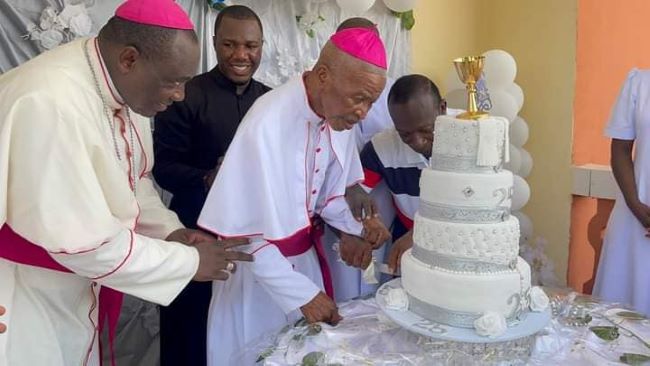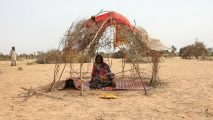Categories
Archives
- April 2024
- March 2024
- February 2024
- January 2024
- December 2023
- November 2023
- October 2023
- September 2023
- August 2023
- July 2023
- June 2023
- May 2023
- April 2023
- March 2023
- February 2023
- January 2023
- December 2022
- November 2022
- October 2022
- September 2022
- August 2022
- July 2022
- June 2022
- May 2022
- April 2022
- March 2022
- February 2022
- January 2022
- December 2021
- November 2021
- October 2021
- September 2021
- August 2021
- July 2021
- June 2021
- May 2021
- April 2021
- March 2021
- February 2021
- January 2021
- December 2020
- November 2020
- October 2020
- September 2020
- August 2020
- July 2020
- June 2020
- May 2020
- April 2020
- March 2020
- February 2020
- January 2020
- December 2019
- November 2019
- October 2019
- September 2019
- August 2019
- July 2019
- June 2019
- May 2019
- April 2019
- March 2019
- February 2019
- January 2019
- December 2018
- November 2018
- October 2018
- September 2018
- August 2018
- July 2018
- June 2018
- May 2018
- April 2018
- March 2018
- February 2018
- January 2018
- December 2017
- November 2017
- October 2017
- September 2017
- August 2017
- July 2017
- June 2017
- May 2017
- April 2017
- March 2017
- February 2017
- January 2017
- December 2016
- November 2016
- October 2016
- September 2016
- August 2016
- July 2016
- June 2016
Featured
 Bishop Francis T. Lysinge @ 25!
Bishop Francis T. Lysinge @ 25!  Understanding the Biya Francophone regime’s support for the Israeli genocide in Gaza
Understanding the Biya Francophone regime’s support for the Israeli genocide in Gaza  Poverty under Biya: Cameroonians embrace Chinese language for brighter futures
Poverty under Biya: Cameroonians embrace Chinese language for brighter futures  Cameroon is broken: Who can fix it?
Cameroon is broken: Who can fix it?  Ethiopia: U.S Senator Cardin Statement on the Killing of Bate Urgessa
Ethiopia: U.S Senator Cardin Statement on the Killing of Bate Urgessa
Most Commented Posts
 4 Anglophone detainees killed in Yaounde
4 Anglophone detainees killed in Yaounde
19 comments Chantal Biya says she will return to Cameroon if General Ivo Yenwo, Martin Belinga Eboutou and Ferdinand Ngoh Ngoh are sacked
Chantal Biya says she will return to Cameroon if General Ivo Yenwo, Martin Belinga Eboutou and Ferdinand Ngoh Ngoh are sacked
13 comments Anglophone Nationalism: Barrister Eyambe says “hidden plans are at work”
Anglophone Nationalism: Barrister Eyambe says “hidden plans are at work”
12 comments The Anglophone Problem – When Facts don’t Lie
The Anglophone Problem – When Facts don’t Lie
12 comments Largest wave of arrest by BIR in Bamenda
Largest wave of arrest by BIR in Bamenda
10 comments
Latest Tweets
Featured
-

Bishop Francis T. Lysinge @ 25!
-

10 Million Cameroonians lived on less than $1.80 per day
-

Football: Xavi to remain as Barcelona coach
-

Biya regime delays bond sale amid regional market strain
-

Historic agreement between Nigeria and Cameroon to tackle wildlife crime
-

Southern Cameroons refugees in Nigeria receive farm seedlings
-

Douala: Investment Forum wraps up with honors for investment champions
© Cameroon Concord News 2024
30, March 2018
Southern Cameroons crisis deepens as Ambazonians increase self-defense efforts 0
Last week, the body of a Tunisian engineer working for construction firm Soroubat was found near Kumba in Southwest Province after the military rescued a compatriot and two Cameroonian technicians kidnapped by separatists, the government believes.
If, as alleged, the militant Ambazonian Defence Force (ADF) was responsible, this latest incident will exacerbate fears of a political meltdown in a region already dotted with ghost towns — fields of ripe cocoa beans are left unattended while teachers and lawyers remain on strike.
Militants ambush police and attack army checkpoints while a military crackdown on dissent has allegedly resulted in many fatalities and scores detained without due process, prompting a civilian exodus.
Systematically denied economic opportunity, Anglophones have for decades been largely excluded from the political process, inspiring activists to demand their own state — Ambazonia — co-extensive with the former UK-administered United Nations Trust Territory of Southern Cameroons.
Public opinion is divided between those embracing the separatist movement and those who believe violence only undermines recent gains.
The token appointment of an English speaker as prime minister has been maintained, while President Paul Biya’s two more loyal Anglophones have ministerial roles.
However, Biya has not accepted demands to reinstate the Anglophone region’s original federal status.
Respected figures such as upstream consultant Simon Tamfu, a Northwesterner and ex-head of exploration at state oil company SNH, believe the struggle for autonomy has been hijacked by militants.
Results of last weekend’s senatorial elections will be known soon, but there is a real risk that October’s presidential polls will be derailed.
Culled from Upstream